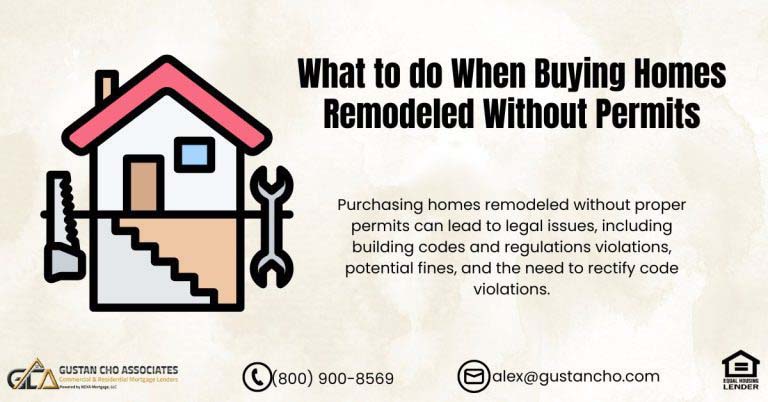This guide covers recent changes in mortgage compliance and regulations. So, mortgage interest rates are increasing and have been the highest since 2008. Mortgage lending guidelines and mortgage compliance have tightened up to the point where prime borrowers are the norm. Dale Elenteny, a senior mortgage loan originator at Gustan Cho Associates says the following about mortgage compliance and regulations:
Mortgage default rates have dropped to record lows as the quality of borrowers has risen. Then we have automation, which makes submitting loans easier and more efficient.
The professionalism of realtors, attorneys, and mortgage professionals are all at better standards. This holds true especially since part-timer loan officers are out of the business. In this article, we will discuss and cover the recent changes in mortgage compliance and regulations.
Mortgage Compliance on Increased Mortgage Programs
With more and more mortgage loan programs available and more simplified to understand, learning the lending guidelines associated with those programs should make competency that much more easy for a mortgage professional to say to a borrower. If you have x ad y, then you get you Z. Finally, we have access to information that has made potential clients themselves more educated. This makes the ability of a loan professional to obtain the necessary documents that much easier.
Average National Credit Scores
The average credit score nationally is 681. This would allow the average person who wanted to purchase eligible with most lenders wanting a 640 or above. So with the tides pointed in the right direction for volume to be back at 2005 levels, why is this not the case? Find out what’s new in mortgage rules for 2025. Discover how updates to compliance guidelines will impact borrowers, lenders, documents, and approvals.
Stay Ahead of Mortgage Rule Changes
New compliance and regulation updates could affect your loan approval and closing process.
Issues With Mortgage Compliance
The main culprit is mortgage compliance. Here are some points to consider. First, the average mortgage loan gets touched by 3-4 more people. Before a mortgage loan used to have a loan officer, a processor, an underwriter, and an appraiser, with a closer/funder at the end.
Now we have the intake person or opener and a loan officer assistant who handles a lot of the duties once performed, so he/she can focus on generating new business.
If the loan officer does enough business, they may even have a junior loan officer to assist the process. Then there is an intake person who will open the file once it is received by the lender. This individual will ensure the minimum necessary documents are in the file. Will have to properly register it.
Documents Required To Process Loan
Since the mortgage meltdown and the real estate market crash, the amount of necessary documents has gone up, as have the required disclosures sent out tot he borrower. This can add a day or two to the turn time. Every file reviewed will take that much longer to look at prior to submission to the underwriter.
At this point, the intake individual will submit the file to the processor, who may order a 4506T. What is this you ask? It is the order of the tax transcripts of a borrower on the loan. This form goes to the IRS.
They will send out the last two years records of income reported to them by the client. This is to ensure the borrower’s ability to pay is certified. The info matches what he/she put on the 1003/application. Since the IRS has had massive cutbacks, this process, which used to take 1-3 days, can now take up to 3 weeks, further delaying the process.
Mortgage Compliance on Mortgage Underwriting Process
The next person who is involved is the gatekeeper of lending: the underwriter. Gone are the days of common sense underwriting. Now a mortgage underwriter has to pull multiple fraud detection software scans.
Looking at various items such as to see if the buyer and seller know each other are they on title/vested on another home they did not disclose or is the home they are buying multiple flips?
With each fraud detection, any little item deemed questionable can delay, suspend, or be cause for denial of the file. The loan officer or realtor will then have to go back to the borrower and ask for necessary documents or explanation to make the underwriter feels better about the transaction’s legitimacy.
Income Qualification and Debt-to-Income Ratios
Then the calculation of the income and looking at the assets is more tedious than ever before. More and more people get paid bonuses and have unreimbursed expenses on their paycheck stubs. More work side jobs. This will all require extra documentation and support from the employer to make the file look stronger and to verify the information submitted.
This only adds to the turn times of a file that may only be locked for 30-45 days. Angie Torres, the national operations director at Gustan Cho Associates says the following about income qualification and debt-to-income ratios:
Then you have assets. Deposits in the form of cash from a wedding or a birthday are common. If that cash is more than $150 for some lenders, they want to know where that money is coming from. If that money is needed to help qualify the client for the loan, then you must be ready to validate and source where that money came from.
If borrowers cannot source this money, then it might not be allowed to be used in the asset count. This presents an ever-growing rift in the realities of life some people get cash all the time from family or from side jobs and money owed and cannot source the money, hence making the process more tedious and time-consuming. Underwritten loans used to be contracted out to Mortgage insurance companies and could do 8-12 underwrites in a day. Now because of mortgage compliance, they are all done inhouse. The number of completed underwrites have been cut in half. If it is a retirement account, you have to verify where it is. Source a withdrawal paper trail, and if it is life insurance, get a paper saying it is not a loan against the insurance.
Mortgage Compliance on Appraisal and Appraisal Review Process
Then you have the appraisal itself. With the advent of the AMC or Appraisal Management company, appraisers now are required to write so much more info in their addendum. They are doing this will getting paid less money at the same time. Dale Elenteny, a senior mortgage loan originator at Gustan Cho Associates said the following about mortgage compliance on appraisal and appraisal review process:
Less and less appraisers are doing more work. They are driving further distances and being required to do more legwork with no contact with the realtor or loan officer as stipulated by Fannie Mae/Freddie Mac.
The reviewer, who is basically making 25-40% of the total fee charged to the borrower, for sitting at a desk to review someone else’s work, has to overlook and sign off on the value and comps used. This adds another day and another fee to the transaction, but does not compensate the person who is still taking the risk(appraiser). More work again in the industry for less margin.
Mortgage Borrowers: Know the Latest Rules
Learn how recent mortgage compliance changes impact buyers, refinances, and lenders.
Mortgage Compliance on Quality Control and Clear To Close
Finally you have pre-audit fraud checks at the end of closing by different systems like MERS, fraud guard, Lexus Nexus, which are designed to make sure the borrower did not buy another house, add on new debt, re-verification that they are still employed. Dale Elenteny, a senior mortgage loan originator at Gustan Cho Associates said the following about mortgage compliance on quality control prior to clear to close:
National public record searches are last second processes that can catch something, because no one is perfect, and people need to move and lie their lives.
Someone might take on a car loan at 0% when they should not because they need a new car and the terms are favorable. Forget the fact they now hurt their chances to qualify even after the loan is approved, and won’t know this will be caught on a re-credit check prior to closing.
Mortgage Compliance on Agency Guidelines Versus Lender Overlays
Overlays: What does this mean? Well Fannie Mae and Freddie Mac has a set of rules and standards on lending that we all abide by when we(banks) lend on houses that they will insure and guarantee. John Strange, a senior mortgage loan originator at Gustan Cho Associates says the following about mortgage compliance on agency guidelines versus lender overlays:
Banks, for their own compliance(the subject of the article), feel the need to add or remove their own set of rules, and it is always on the side of caution. Fannie Mae says: you can do this, bank A: no we still want this in order to do that.
This grey area of lending and interpretation rather than following it by the book makes lenders conservative on programs that would otherwise assist in taking inventory off the market.
Fannie Mae chooses not to mandate the change, but rather allow for discretion than it is almost a guarantee that discretion will air on the side of caution.
Mortgage Compliance on Title in The Mortgage Process
Finally, as a title rep, we have seen the number of pages involved in closing almost double in ten years. The average FHA number of pages for closing a refinance is between 120-150 That is a book’s worth of repetitive documents like 7 escrow agreements for taxes, 7-10 for notification they have an FHA mortgage and have to pay it back, and 7-10 HUD addendum stating they signed a HUD with the fees associated.
These changes mandate clearer language and interactive digital tools, helping borrowers compare offers and grasp the total cost of credit more easily.
Enhanced Fair Lending Oversight
The CFPB and the Department of Justice have intensified fair lending examinations, expanding the scope of data collection, particularly tribal and small lender data. Institutions now face stricter scrutiny on pricing disparities and lending practices across demographics, making it crucial for lenders to conduct thorough self-assessments and keep detailed fair lending records.
Updated Ability-to-Repay Standards
Effective January 1, 2025, the ability-to-repay (ATR) Rule requires lenders to collect and document a broader range of borrower data. This includes updated verifications of income sources that reflect shifting workplace trends, like gig and remote contractor jobs. These stricter data points prevent borrowers from taking on debt they cannot repay while enabling flexible credit assessments for nontraditional income earners.
Continued Servicing Requirements
Servicing compliance is under permanent scrutiny. Recent amendments to the Real Estate Settlement Procedures Act (RESPA) require lenders to provide updated loss mitigation options every 90 days for borrowers in active repayment plans.
Servicers that neglect timely communication risk penalties, and borrowers are left uninformed of options that could keep them in their homes.
Mortgage compliance is more than a set of rules; it’s a framework that shapes how money moves through the housing market. By closely monitoring the latest changes, borrowers can choose products that suit their finances. At the same time, lenders can mitigate risk and deliver the transparent, responsible lending that the market and regulators expect. Staying compliant is an investment in long-term success.
FAQs on Mortgage Compliance and Regulations
What Happens if a Lender Violates Mortgage Compliance Rules?
Violations can result in fines, corrective actions, and reputational damage. Depending on the violation, borrowers may also have the right to a rescission or lawsuit.
How Can I Stay Updated on Compliance Changes?
Subscribe to newsletters from the CFPB, your state’s banking department, and trade associations. Attending industry webinars and reviewing quarterly compliance hotlines can also keep you informed.
What Role Do Credit Reports Play in Compliance?
Accurate credit reports are vital for assessing ATR. Lenders must verify that their credit data complies with the Fair Credit Reporting Act to avoid adverse action against consumers.
Explore the 2025 mortgage compliance updates every borrower and lender must know. Discover stricter consumer protections, fair lending examinations, ATR updates, and ongoing servicing rules. Stay compliant and informed.
Updated Loan Origination Standards
Lenders now have tighter rules when checking borrowers’ income, assets, and work history. These changes aim to curb fraud and ensure that borrowers can genuinely afford their loans.
Fair Lending and Anti-Discrimination Enhancements
New rules under the Equal Credit Opportunity Act and the Fair Housing Act require lenders to offer clearer reasons when they deny a loan. They must also prove they treat all borrowers equally and without bias.
Don’t Let New Rules Delay Your Loan
Understand updated regulations and how to stay prepared for a smooth approval.
Mortgage Servicing Regulation Updates
Tighter Foreclosure Rules
Homeowners who are struggling financially have new protections. Servicers now have to present extra loss mitigation options before they can start a foreclosure.
Clearer Communication Requirements
Mortgage servicers must now send borrowers simple updates about their payments, escrow accounts, and any notices of delinquency. This makes the entire process easier to understand.
Technology and Compliance
Digital Mortgage Standards
As e-signatures and online applications become more common, new rules require digital lending platforms to keep borrower data safe and private.
AI and Fair Lending
Lenders who use AI to underwrite loans must prove that their models do not discriminate based on race, gender, or any other protected class.
How These Changes Impact You
Clearer Loan Terms
Borrowers now receive disclosures packed with extra details. This helps them easily compare loan options and choose the best one.
Longer Wait for Approval
Tighter verification rules can slow approval times, especially if you’re self-employed or have a complicated financial picture.
Stronger Protection
New rules give you extra rights if you experience financial difficulties or think your lender is treating you unfairly.
How Lenders Are Catching Up
Lenders hire compliance experts, upgrade tech systems, and train teams to meet the new rules. They’re also fine-tuning digital tools to smooth your experience while sticking to every federal and state law.
Getting Ready for the Next Wave of Changes
Rules will continue to shift as the housing market moves. Stay updated, ask your lender how they’re keeping pace, and consult pros who know the latest guidelines.
Common Questions on Mortgage Compliance and Regulations
What is Mortgage Compliance?
Mortgage compliance involves following federal and state rules when granting home loans. Its goal is to keep lending fair, clear, and legal.
How Do Recent Changes Affect Borrowers?
Borrowers now enjoy clearer loan documents, stronger shields against discrimination, and better support when facing money troubles.
Will These Changes Slow Down Mortgage Approvals?
Sometimes, yes. New rules for verifying income and identity can stretch timelines. But these checks also make loans safer and fairer for everyone.
What Role Does the CFPB Play?
The CFPB ensures mortgage rules are followed and helps guarantee that lenders treat borrowers fairly.
How Can Borrowers Protect Themselves?
Read each loan document carefully, speak up with questions, and work alongside lenders to make sure compliance and transparency come first.
Do Digital Mortgage Applications Follow the Same Rules?
Absolutely. Digital lenders must obey every compliance rule, plus extra rules for data privacy and security.
Can Lenders Be Penalized For Non-Compliance?
Yes. They risk fines, lawsuits, and even limits on their lending ability.
How Do These Changes Affect First-Time Homebuyers?
First-time buyers now face clearer loan documents and better consumer protection, which helps make home buying less scary.
Do Compliance Changes Impact Self-Employed Borrowers?
Yes. New rules for verifying income mean self-employed borrowers must provide more paperwork than before.
What Should I Ask My Lender About Compliance?
Ask how they follow CFPB, ECOA, and FHA rules to confirm fair treatment and accurate loan disclosures.
Buying or Refinancing in 2025?
See how the latest mortgage compliance changes affect your options.









